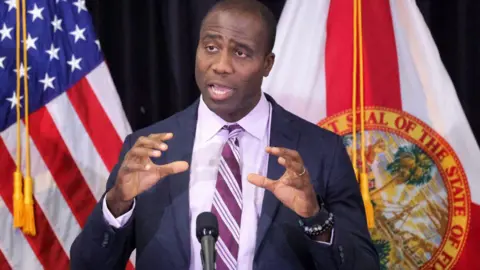To be or not to be on the shelf?
School districts across Florida are struggling to figure out how to apply a new book-challenge law that could lead to the removal of even classic works like Shakespeare’s plays.
The law, which took effect on July 1, defines “sexual conduct” as including actual or simulated intercourse, exhibition of or physical contact with genitalia, or any depiction of “sexual battery.”
Florida school books: Districts struggle with new book challenge law
This broad definition has led some school districts to err on the side of caution and remove books that contain even brief references to sex or sexuality. In Leon County, for example, four Shakespeare plays have been restricted for certain grades.
Critics say the law is an attempt to censor books that discuss difficult topics, such as sex and race. They argue that the law is vague and could be used to remove any book that a parent or group finds objectionable.
The Florida Department of Education has not yet provided guidance on how to interpret the law, so school districts are left to decide for themselves what books to remove. This has led to a patchwork of policies across the state, with some districts being more restrictive than others.
The law has been met with widespread criticism from librarians, authors, and free speech advocates. They argue that the law is a threat to intellectual freedom and will have a chilling effect on the availability of books in Florida schools.
It remains to be seen how the law will be enforced in the coming months and years. However, it is clear that the law has already had a significant impact on the availability of books in Florida schools.
Here are some key points from the article:
- A new law in Florida defines “sexual conduct” broadly, which could lead to the removal of even classic works like Shakespeare’s plays.
- Some school districts are erring on the side of caution and removing books that contain even brief references to sex or sexuality.
- Critics say the law is an attempt to censor books that discuss difficult topics, such as sex and race.
- The Florida Department of Education has not yet provided guidance on how to interpret the law, so school districts are left to decide for themselves what books to remove.
- The law has been met with widespread criticism from librarians, authors, and free speech advocates.
- It remains to be seen how the law will be enforced in the coming months and years.




